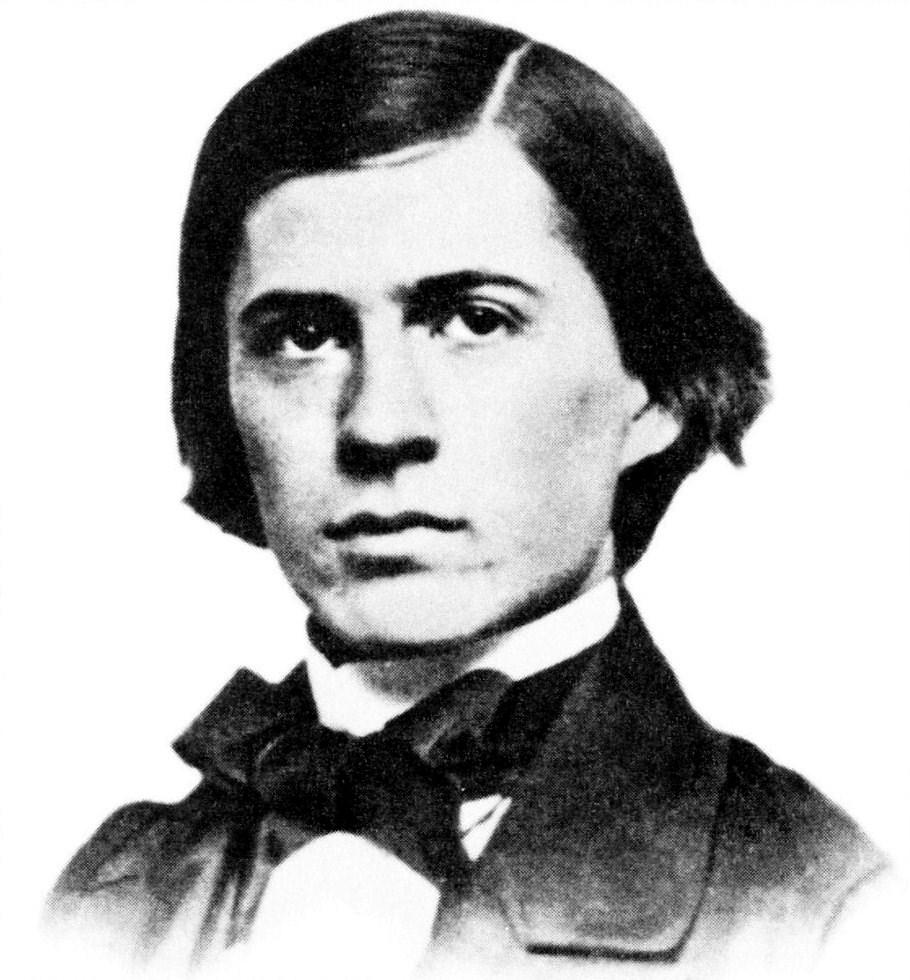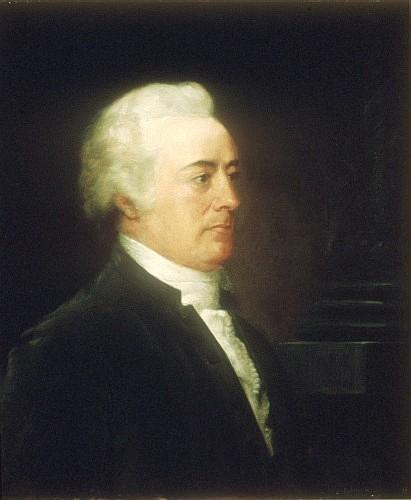|
The Metaphysical Club
The Metaphysical Club was a name attributed by the philosopher Charles Sanders Peirce, in an unpublished paper over thirty years after its foundation, to a conversational philosophical club that Peirce, the future Supreme Court Justice Oliver Wendell Holmes Jr., the philosopher and psychologist William James, amongst others, formed in January 1872 in Cambridge, Massachusetts, and dissolved in December 1872. Other members of the club included Chauncey Wright, John Fiske, Francis Ellingwood Abbot, Nicholas St. John Green, and Joseph Bangs Warner. Within the philosophical discussions of the original club, pragmatism is said by Peirce to have been born. The name of the 1872 club was chosen "half-ironically, half-defiantly," according to Peirce, as the group rejected the radical foundationalist European metaphysics in favor of a moderate foundationalism, pursued critical thinking of a pragmatic and positivist nature. However there is in fact no record of a club of this name ... [...More Info...] [...Related Items...] OR: [Wikipedia] [Google] [Baidu] [Amazon] |
Charles Sanders Peirce
Charles Sanders Peirce ( ; September 10, 1839 – April 19, 1914) was an American scientist, mathematician, logician, and philosopher who is sometimes known as "the father of pragmatism". According to philosopher Paul Weiss (philosopher), Paul Weiss, Peirce was "the most original and versatile of America's philosophers and America's greatest logician". Bertrand Russell wrote "he was one of the most original minds of the later nineteenth century and certainly the greatest American thinker ever". Educated as a chemist and employed as a scientist for thirty years, Peirce meanwhile made major contributions to logic, such as theories of Algebraic logic, relations and Quantifier (logic), quantification. Clarence Irving Lewis, C. I. Lewis wrote, "The contributions of C. S. Peirce to symbolic logic are more numerous and varied than those of any other writer—at least in the nineteenth century." For Peirce, logic also encompassed much of what is now called epistemology and the philoso ... [...More Info...] [...Related Items...] OR: [Wikipedia] [Google] [Baidu] [Amazon] |
Positivism
Positivism is a philosophical school that holds that all genuine knowledge is either true by definition or positivemeaning '' a posteriori'' facts derived by reason and logic from sensory experience.John J. Macionis, Linda M. Gerber, ''Sociology'', Seventh Canadian Edition, Pearson Canada. Other ways of knowing, such as intuition, introspection, or religious faith, are rejected or considered meaningless. Although the positivist approach has been a recurrent theme in the history of Western thought, modern positivism was first articulated in the early 19th century by Auguste Comte. His school of sociological positivism holds that society, like the physical world, operates according to scientific laws. After Comte, positivist schools arose in logic, psychology, economics, historiography, and other fields of thought. Generally, positivists attempted to introduce scientific methods to their respective fields. Since the turn of the 20th century, positivism, although still ... [...More Info...] [...Related Items...] OR: [Wikipedia] [Google] [Baidu] [Amazon] |
Organizations Disestablished In 1872
An organization or organisation (Commonwealth English; see spelling differences) is an entity—such as a company, or corporation or an institution (formal organization), or an association—comprising one or more people and having a particular purpose. Organizations may also operate secretly or illegally in the case of secret societies, criminal organizations, and resistance movements. And in some cases may have obstacles from other organizations (e.g.: MLK's organization). What makes an organization recognized by the government is either filling out incorporation or recognition in the form of either societal pressure (e.g.: Advocacy group), causing concerns (e.g.: Resistance movement) or being considered the spokesperson of a group of people subject to negotiation (e.g.: the Polisario Front being recognized as the sole representative of the Sahrawi people and forming a partially recognized state.) Compare the concept of social groups, which may include non-organiza ... [...More Info...] [...Related Items...] OR: [Wikipedia] [Google] [Baidu] [Amazon] |
Philosophical Societies In The United States
Philosophy ('love of wisdom' in Ancient Greek) is a systematic study of general and fundamental questions concerning topics like existence, reason, knowledge, value, mind, and language. It is a rational and critical inquiry that reflects on its methods and assumptions. Historically, many of the individual sciences, such as physics and psychology, formed part of philosophy. However, they are considered separate academic disciplines in the modern sense of the term. Influential traditions in the history of philosophy include Western, Arabic–Persian, Indian, and Chinese philosophy. Western philosophy originated in Ancient Greece and covers a wide area of philosophical subfields. A central topic in Arabic–Persian philosophy is the relation between reason and revelation. Indian philosophy combines the spiritual problem of how to reach enlightenment with the exploration of the nature of reality and the ways of arriving at knowledge. Chinese philosophy focuses principally on ... [...More Info...] [...Related Items...] OR: [Wikipedia] [Google] [Baidu] [Amazon] |
A Story Of Ideas In America
A, or a, is the first letter and the first vowel letter of the Latin alphabet, used in the modern English alphabet, and others worldwide. Its name in English is '' a'' (pronounced ), plural ''aes''. It is similar in shape to the Ancient Greek letter alpha, from which it derives. The uppercase version consists of the two slanting sides of a triangle, crossed in the middle by a horizontal bar. The lowercase version is often written in one of two forms: the double-storey and single-storey . The latter is commonly used in handwriting and fonts based on it, especially fonts intended to be read by children, and is also found in italic type. In English, '' a'' is the indefinite article, with the alternative form ''an''. Name In English, the name of the letter is the ''long A'' sound, pronounced . Its name in most other languages matches the letter's pronunciation in open syllables. History The earliest known ancestor of A is ''aleph''—the first letter of the Phoenician ... [...More Info...] [...Related Items...] OR: [Wikipedia] [Google] [Baidu] [Amazon] |
Louis Menand
Louis Menand (; born January 21, 1952) is an American critic, essayist, and professor who wrote the Pulitzer-winning book '' The Metaphysical Club'' (2001), an intellectual and cultural history of late 19th- and early 20th-century America. Life and career Menand was born in Syracuse, New York, and raised around Boston, Massachusetts. His mother, Catherine (Shults) Menand, was a historian who wrote a biography of Samuel Adams. His father, Louis Menand III, taught political science at the Massachusetts Institute of Technology. His grandfather and great-grandfather owned the Louis Menand House, located in Menands, New York, and listed on the National Register of Historic Places in 1985. The village of Menands is named after his great-grandfather, a 19th-century horticulturist. A 1973 graduate of Pomona College, Menand attended Harvard Law School for one year (1973–1974) before he left to earn Master of Arts (1975) and PhD (1980) degrees in English from Columbia University. He ... [...More Info...] [...Related Items...] OR: [Wikipedia] [Google] [Baidu] [Amazon] |
John Dewey
John Dewey (; October 20, 1859 – June 1, 1952) was an American philosopher, psychologist, and Education reform, educational reformer. He was one of the most prominent American scholars in the first half of the twentieth century. The overriding theme of Dewey's works was his profound belief in democracy, be it in politics, education, or communication and journalism. As Dewey himself stated in 1888, while still at the University of Michigan, "Democracy and the one, ultimate, ethical ideal of humanity are to my mind synonymous." Dewey considered two fundamental elements—schools and civil society—to be major topics needing attention and reconstruction to encourage experimental intelligence and plurality. He asserted that complete democracy was to be obtained not just by extending voting rights but also by ensuring that there exists a fully formed public opinion, accomplished by communication among citizens, experts, and politicians. Dewey was one of the primary figures associ ... [...More Info...] [...Related Items...] OR: [Wikipedia] [Google] [Baidu] [Amazon] |
Johns Hopkins University
The Johns Hopkins University (often abbreviated as Johns Hopkins, Hopkins, or JHU) is a private university, private research university in Baltimore, Maryland, United States. Founded in 1876 based on the European research institution model, Johns Hopkins is considered to be the first research university in the U.S. The university was named for its first benefactor, the American entrepreneur and Quakers, Quaker philanthropist Johns Hopkins. Hopkins's $7 million bequest (equivalent to $ in ) to establish the university was the largest Philanthropy, philanthropic gift in U.S. history up to that time. Daniel Coit Gilman, who was inaugurated as :Presidents of Johns Hopkins University, Johns Hopkins's first president on February 22, 1876, led the university to revolutionize higher education in the U.S. by integrating teaching and research. In 1900, Johns Hopkins became a founding member of the Association of American Universities. The university has led all Higher education in the U ... [...More Info...] [...Related Items...] OR: [Wikipedia] [Google] [Baidu] [Amazon] |
Henry James
Henry James ( – ) was an American-British author. He is regarded as a key transitional figure between literary realism and literary modernism, and is considered by many to be among the greatest novelists in the English language. He was the son of Henry James Sr. and the brother of Philosophy, philosopher and psychologist William James and diarist Alice James. He is best known for his novels dealing with the social and marital interplay between ''émigré ''Americans, the English, and continental Europeans, such as ''The Portrait of a Lady''. His later works, such as ''The Ambassadors'', ''The Wings of the Dove'' and ''The Golden Bowl'' were increasingly experimental. In describing the internal states of mind and social dynamics of his characters, James often wrote in a style in which ambiguous or contradictory motives and impressions were overlaid or juxtaposed in the discussion of a character's psyche. For their unique ambiguity, as well as for other aspects of their compos ... [...More Info...] [...Related Items...] OR: [Wikipedia] [Google] [Baidu] [Amazon] |
Charles Sanders Peirce Bibliography
This Charles Sanders Peirce bibliography consolidates numerous references to the writings of Charles Sanders Peirce, including letters, manuscripts, publications, and . For an extensive chronological list of Peirce's works (titled in English), see the (Chronological Overview) on the (Writings) page for Charles Sanders Peirce. Abbreviations Click on abbreviation in order to jump down this page to the relevant edition information. Click on the abbreviation appearing with that edition information in order to return here. Main editions (posthumous) Other Primary literature Bibliographies and microfilms Other bibliographies of primary literature * Burks, Arthur W. (1958). "Bibliography of the Works of Charles Sanders Peirce." CP 8:260–321. * Cohen, Morris R. (1916). "Charles S. Peirce and a Tentative Bibliography of His Published Writings." '' The Journal of Philosophy, Psychology, and Scientific Methods'' 13(26):726–37. *Fisch, Max H. (1964). "A First Supplement ... [...More Info...] [...Related Items...] OR: [Wikipedia] [Google] [Baidu] [Amazon] |
Supreme Court Justice
The Supreme Court of the United States is the highest-ranking judicial body in the United States. Its membership, as set by the Judiciary Act of 1869, consists of the chief justice of the United States and eight associate justices, any six of whom constitute a quorum. Article II, Section 2, Clause 2 of the Constitution grants plenary power to the president of the United States to nominate, and with the advice and consent of the United States Senate, appoint justices to the Supreme Court; justices have life tenure. Background The Supreme Court was created by Article III of the United States Constitution, which stipulates that the "judicial power of the United States, shall be vested in one Supreme Court," and was organized by the 1st United States Congress. Through the Judiciary Act of 1789, Congress specified the Court's original and appellate jurisdiction, created thirteen judicial districts, and fixed the number of justices at six (one chief justice and five associate just ... [...More Info...] [...Related Items...] OR: [Wikipedia] [Google] [Baidu] [Amazon] |






